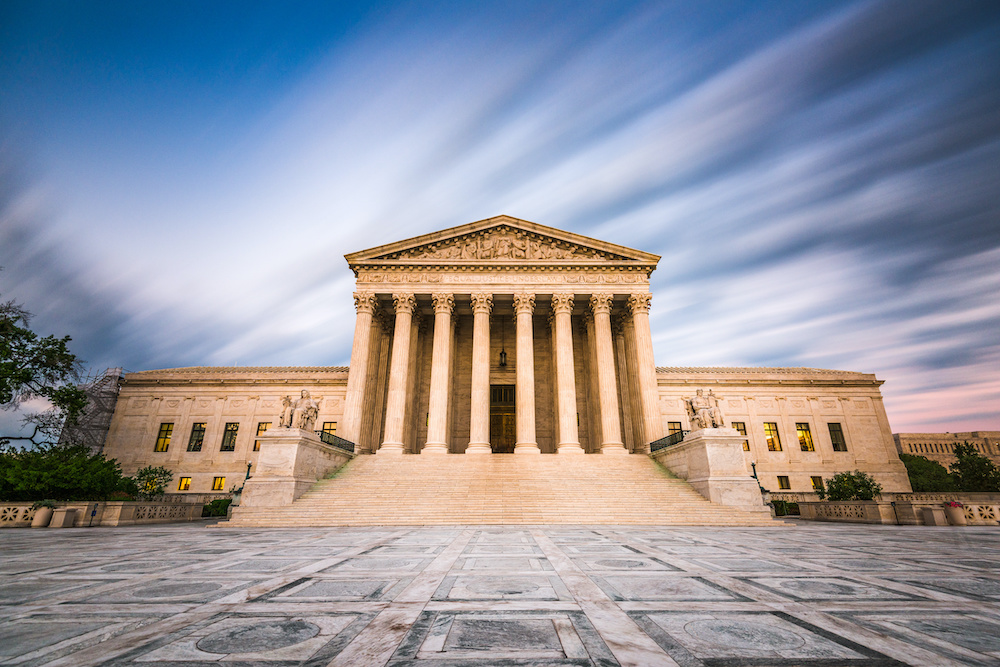
- Details
- By Neely Bardwell
The U.S. Supreme Court on Monday declined to hear a challenge to North Dakota’s legislative map, affirming one Native-majority district and dismissing an appeal regarding another.
The high court affirmed a lower court decision that preserves North Dakota House District 4A, which follows the borders of the Fort Berthold Reservation. The ruling also dismissed an appeal with respect to subdistrict 9A, which includes the Turtle Mountain Reservation. The high court did not explain its reasoning behind the decision.
The lawsuit, Walen v. Burgum, began in Feb. 2022, when Republican officials Charles Walen and Paul Henderson filed suit to dissolve the newly created Native-majority districts. The Mandan, Hidatsa, and Arikara (MHA) Nation and tribal citizens intervened to defend subdistrict 4A.
The MHA Nation had advocated for the subdistrict during North Dakota’s 2021 redistricting process, despite a state committee’s refusal to hold public hearings on reservations. The legislature ultimately approved a map that included House District 4A, which follows reservation boundaries.
“The MHA Nation is pleased that the Supreme Court has upheld North Dakota's voter redistricting legislation," MHA Nation Chairman Mark N. Fox said in a statement. "The legislation gives the MHA Nation a voice in the state legislature by redrawing fair districting voting lines. This win strengthens the civil rights of every citizen in the state and allows rural and reservation voters an equal opportunity to elect the person they want to represent their community.”
In Dec. 2024, the U.S. Solicitor General supported the lower court’s finding that Section 2 of the Voting Rights Act required the creation of District 4A.
The case was one of two recent voting rights challenges in North Dakota. In a separate lawsuit, a federal judge ordered new boundaries for Districts 9A and 9B for the 2024 election following a challenge by the Turtle Mountain Band of Chippewa.
The Native American Rights Fund, Campaign Legal Center, and the Law Office of Bryan L. Sells, LLC, represented the Indigenous parties in both cases.
Editor’s Note: An earlier version of this story incorrectly named Doug Olson and David Andahl as the plaintiffs. The plaintiffs were Charles Walen and Paul Henderson. The story has also been updated to clarify that the Supreme Court's decision specifically affirmed District 4A while dismissing an appeal regarding District 9A.
More Stories Like This
NCAI Passes Two Emergency Resolutions on Immigration Enforcement ActivitiesChickasaw Lighthorse Police Officer named Indian Country Law Enforcement Officer of the Year
Indian Gaming Association Rallies Broad Coalition Against Sports Event Contracts It Calls Illegal Threat to Tribal Sovereignty
Navajo Resources and Development Committee Issues Notice on Livestock Inspection Requirements
American Prairie, Tribal Coalition Files Protest Over Rescinded Grazing Rights
Help us defend tribal sovereignty.
At Native News Online, our mission is rooted in telling the stories that strengthen sovereignty and uplift Indigenous voices — not just at year’s end, but every single day.
Because of your generosity last year, we were able to keep our reporters on the ground in tribal communities, at national gatherings and in the halls of Congress — covering the issues that matter most to Indian Country: sovereignty, culture, education, health and economic opportunity.
That support sustained us through a tough year in 2025. Now, as we look to the year ahead, we need your help right now to ensure warrior journalism remains strong — reporting that defends tribal sovereignty, amplifies Native truth, and holds power accountable.
 The stakes couldn't be higher. Your support keeps Native voices heard, Native stories told and Native sovereignty defended.
The stakes couldn't be higher. Your support keeps Native voices heard, Native stories told and Native sovereignty defended.
Stand with Warrior Journalism today.
Levi Rickert (Potawatomi), Editor & Publisher

